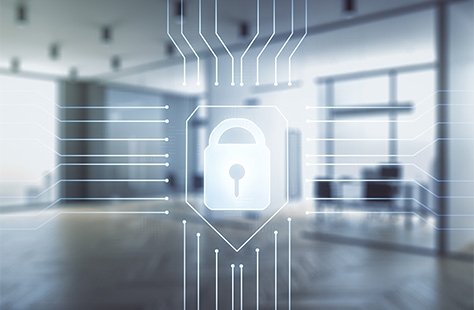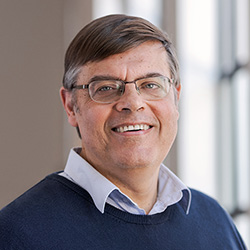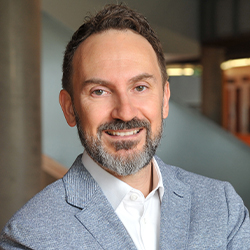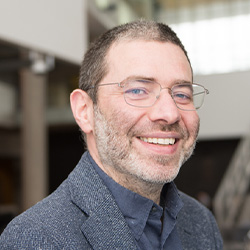
Information and communication technologies have fundamentally transformed the way we live, bringing undeniable benefits to our societies. But recent events give us daily reminders that these advances have also paved the way for cyber threats to society at large.
For example, the global costs of cybercrime are projected to reach US$10.5 trillion per year by 20251. Ransomware alone will cost its victims approximately US$265 billion a year by 20312.
Meanwhile, the dazzling progress of artificial intelligence, the massive deployment of connected objects, or even the systematic use of disinformation campaigns, are all factors developments that pose a threat to our global economic and democratic systems.
These risk factors also highlight a major concern: the cybersecurity workforce shortage, which in 2022 was estimated at 3.4 million workers globally3.
In order to meet these huge societal challenges, the Québec and Canadian academic community must play a key role and stimulate its common strengths. The creation of the Multidisciplinary Institute for Cybersecurity and Cyber Resilience (Institut multidisciplinaire en cybersécurité et cyberrésilience - IMC2) answers that need.
An extensive network of multidisciplinary academic expertise
 The creation of IMC2 is based on an initial structuring partnership between Polytechnique Montréal, initiator of the project, Université de Montréal and HEC Montréal. It brings together all the resources of the Montréal campus to carry out ambitious, innovative and multidisciplinary projects.
The creation of IMC2 is based on an initial structuring partnership between Polytechnique Montréal, initiator of the project, Université de Montréal and HEC Montréal. It brings together all the resources of the Montréal campus to carry out ambitious, innovative and multidisciplinary projects.
With numerous professors and researchers involved in cybersecurity, as well as several training courses in the field, the Montréal Campus is now a major Canadian player in this sector. Right from the start, the pooling of cyber expertise in technology, human factors, and management places IMC2 as a central actor in the ecosystem.
Virtuous partnerships, focused on today's problems and tomorrow's solutions
 There is no doubt about the excellence of the existing cybersecurity network in Quebec and Canada, whether at the university, industrial or government level. The unique positioning of IMC2 makes it a singular academic convergence crossroads, which will allow the pooling and strengthening of complementary synergies within the ecosystem.
There is no doubt about the excellence of the existing cybersecurity network in Quebec and Canada, whether at the university, industrial or government level. The unique positioning of IMC2 makes it a singular academic convergence crossroads, which will allow the pooling and strengthening of complementary synergies within the ecosystem.
Since its inception, the Institute has been able to count on strong relationships with many leading partners in the cybersecurity ecosystem.
An impactful mission consistent with government and industrial roadmaps
 In coordination with its partners, the Institute stimulates the culture of excellence in engineering and social sciences in cybersecurity, by increasing scientific and industrial competences in the field of cybersecurity; developing world-class knowledge and technologies; playing an active role in the development of Canada's cybersecurity industry; and accelerating the adoption of eco-responsible cybersecurity behaviours.
In coordination with its partners, the Institute stimulates the culture of excellence in engineering and social sciences in cybersecurity, by increasing scientific and industrial competences in the field of cybersecurity; developing world-class knowledge and technologies; playing an active role in the development of Canada's cybersecurity industry; and accelerating the adoption of eco-responsible cybersecurity behaviours.
4 structuring pillars, supported by an innovative eco-responsible foundation

Education, research, innovation, and public policy awareness are the pillars of IMC2. These major themes are aligned with the strategic plans of the founding universities, and are based on a rigorous aspiration to achieve sustainable development goals.
Indeed, we strive to get rid of polluting and under-secured technological systems on which we only add remediation patches, in order to move towards sustainable and green cybersecurity and cyber resilience technologies.
MULTIDISCIPLINARY RESEARCH AND DEVELOPMENT
- Attract, train and retain world-class cybersecurity researchers
- Develop solutions to the key cybersecurity challenges in Québec and Canada
- Perform R&D that will create wealth and jobs
SKILLS AND TALENT DEVELOPMENT
- Expand multidisciplinary, interfaculty and interuniversity training
- Develop training on emerging areas
- Continue to expand offering in terms of continuing education certifying courses and short refresher training
- Share and align programs, courses and professors
KNOWLEDGE SHARING & TRANSFER, AND INNOVATION
- Deploy a secure platform for cybersecurity data sharing and valorization
- Integrate entrepreneurship into existing cybersecurity education
- Strengthen relationship with regional incubators (targeted activities, hackathons and conferences)
PUBLIC POLICY
- Develop a cyber-conscious and cyber-responsible society
- Raise awareness of cybersecurity behaviours among citizens, decision-makers and professionals
- Play the role of observatory and watch on the evolution of the cyber threat
The key element: A multidisciplinary and cross-sectoral approach
 The rapid evolution of emerging technologies such as artificial intelligence, quantum and post-quantum and 5G underscores the relevance of creating an academic institute rooted in openness and collaboration.
The rapid evolution of emerging technologies such as artificial intelligence, quantum and post-quantum and 5G underscores the relevance of creating an academic institute rooted in openness and collaboration.
Bringing together the academic forces of the ecosystem in a collaborative spirit makes it possible to address all the technological and human challenges facing various economic fields such as aeronautics, finance, and maritime transport.
The team






